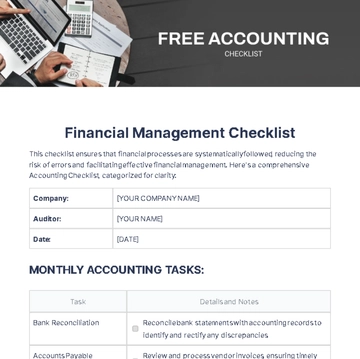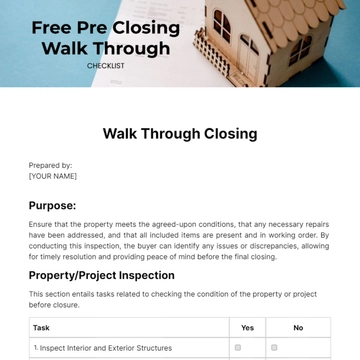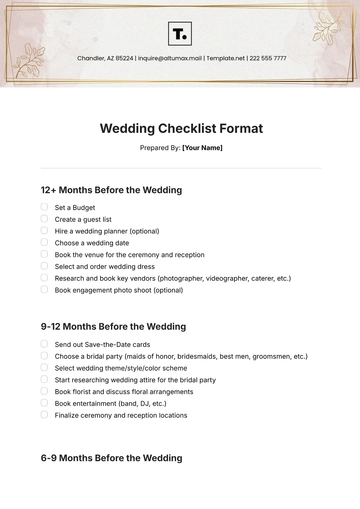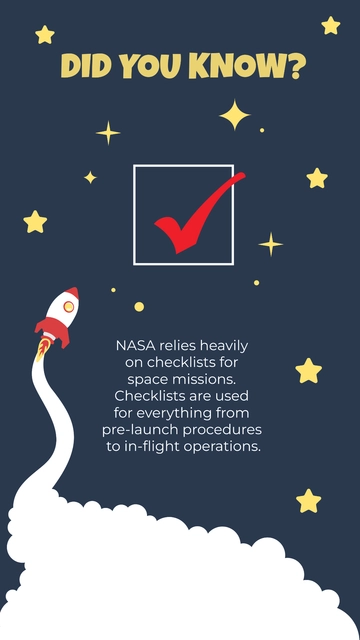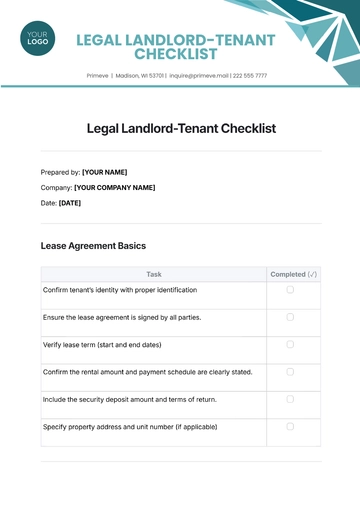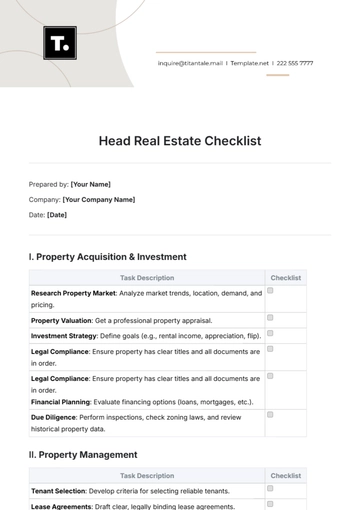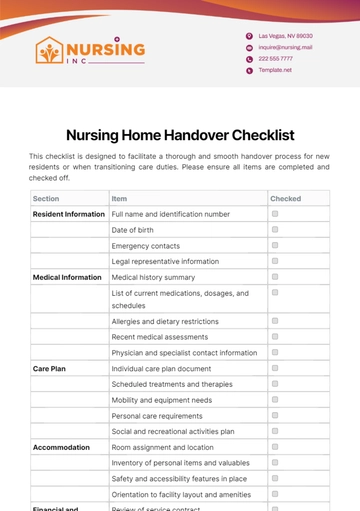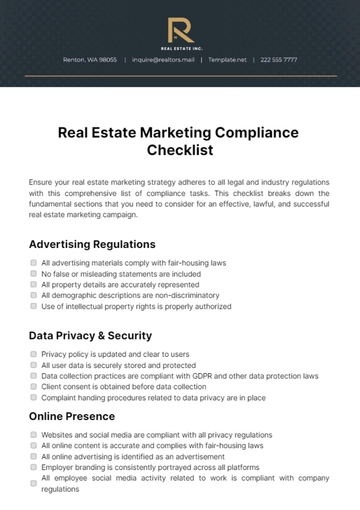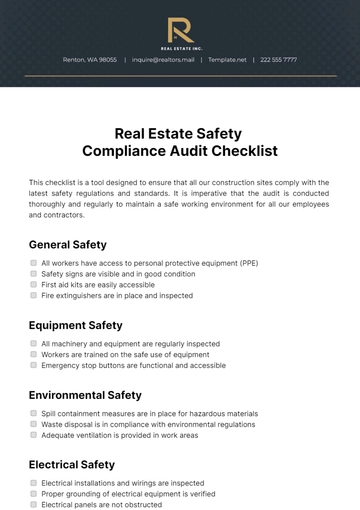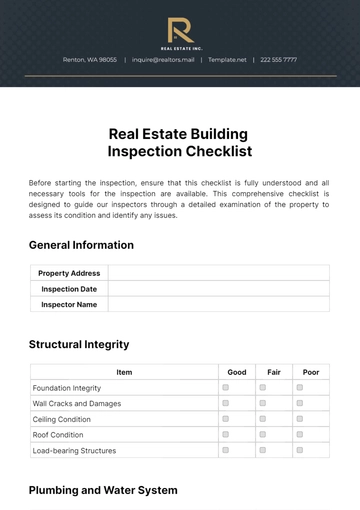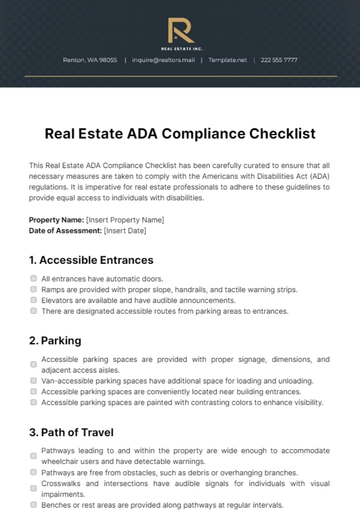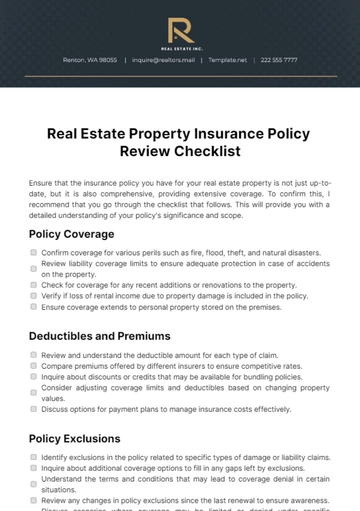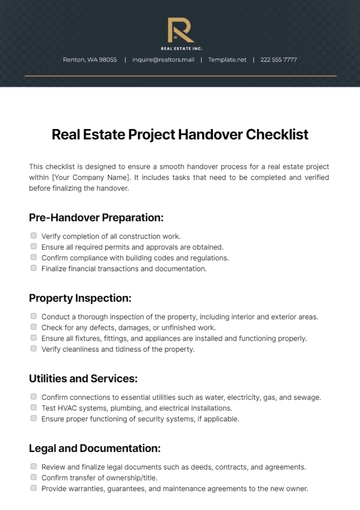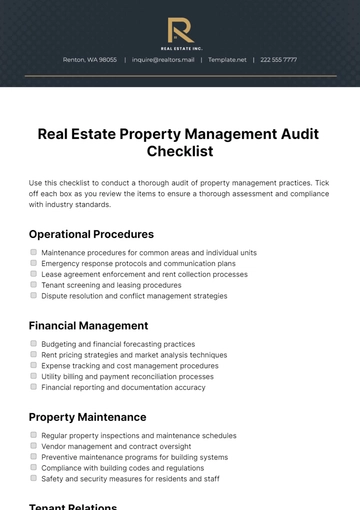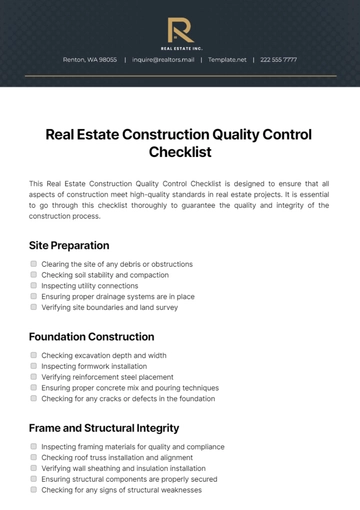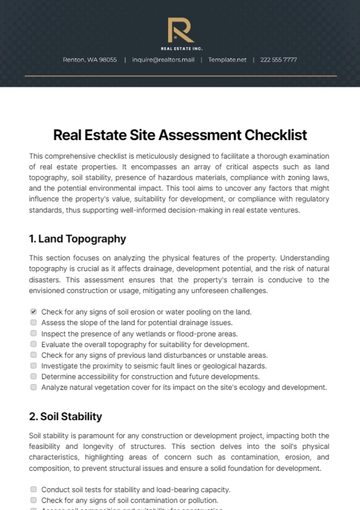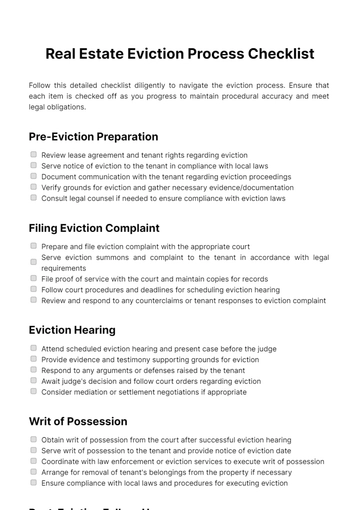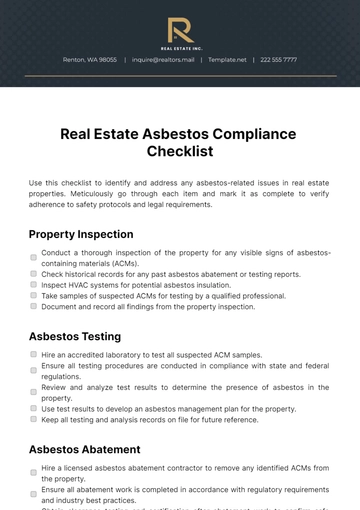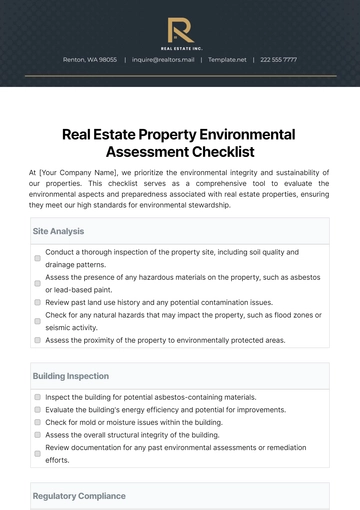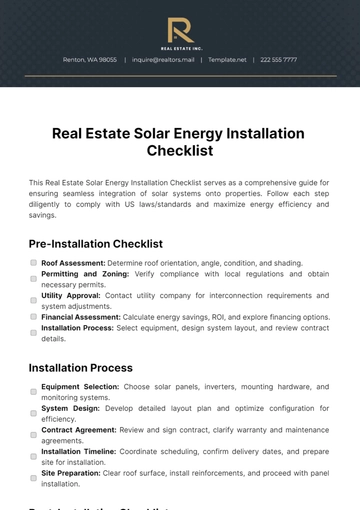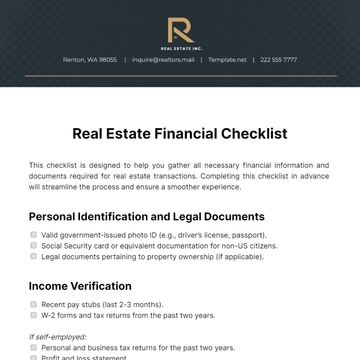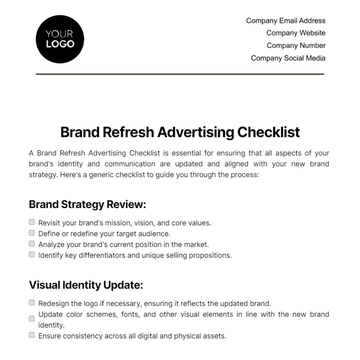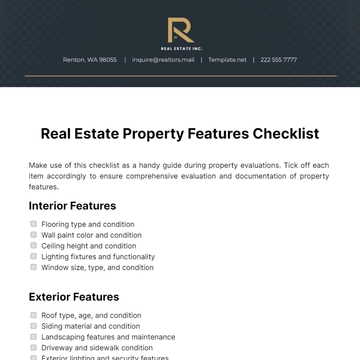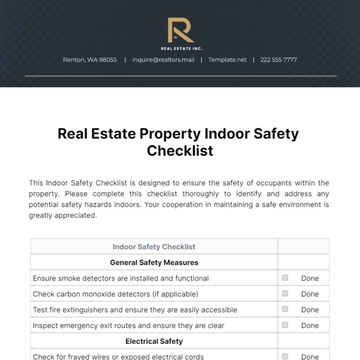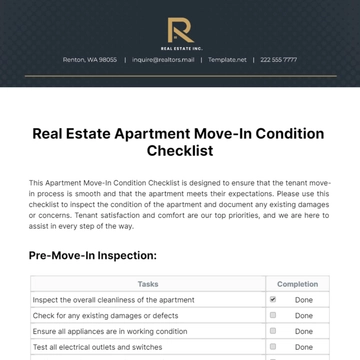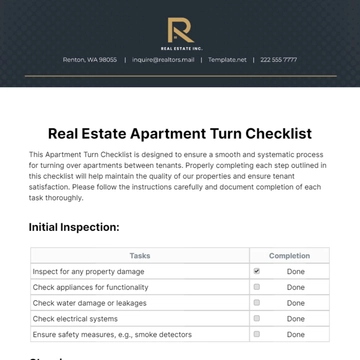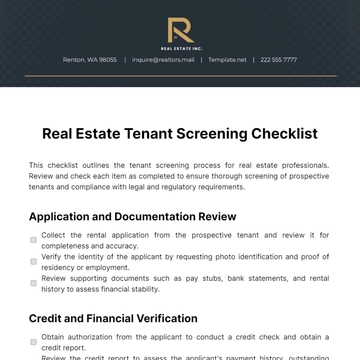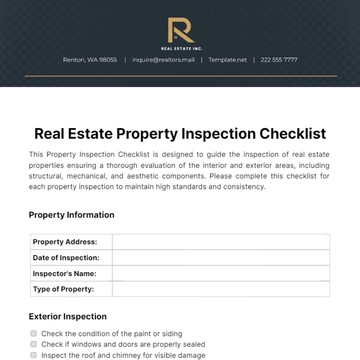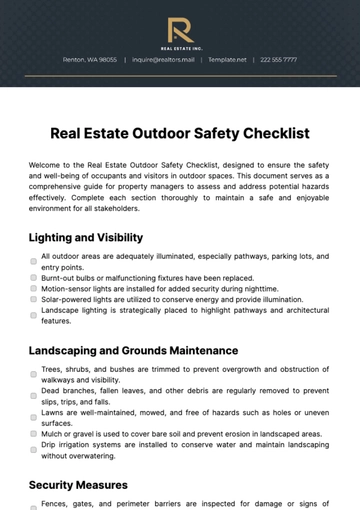Free Assistant Property Manager Checklist
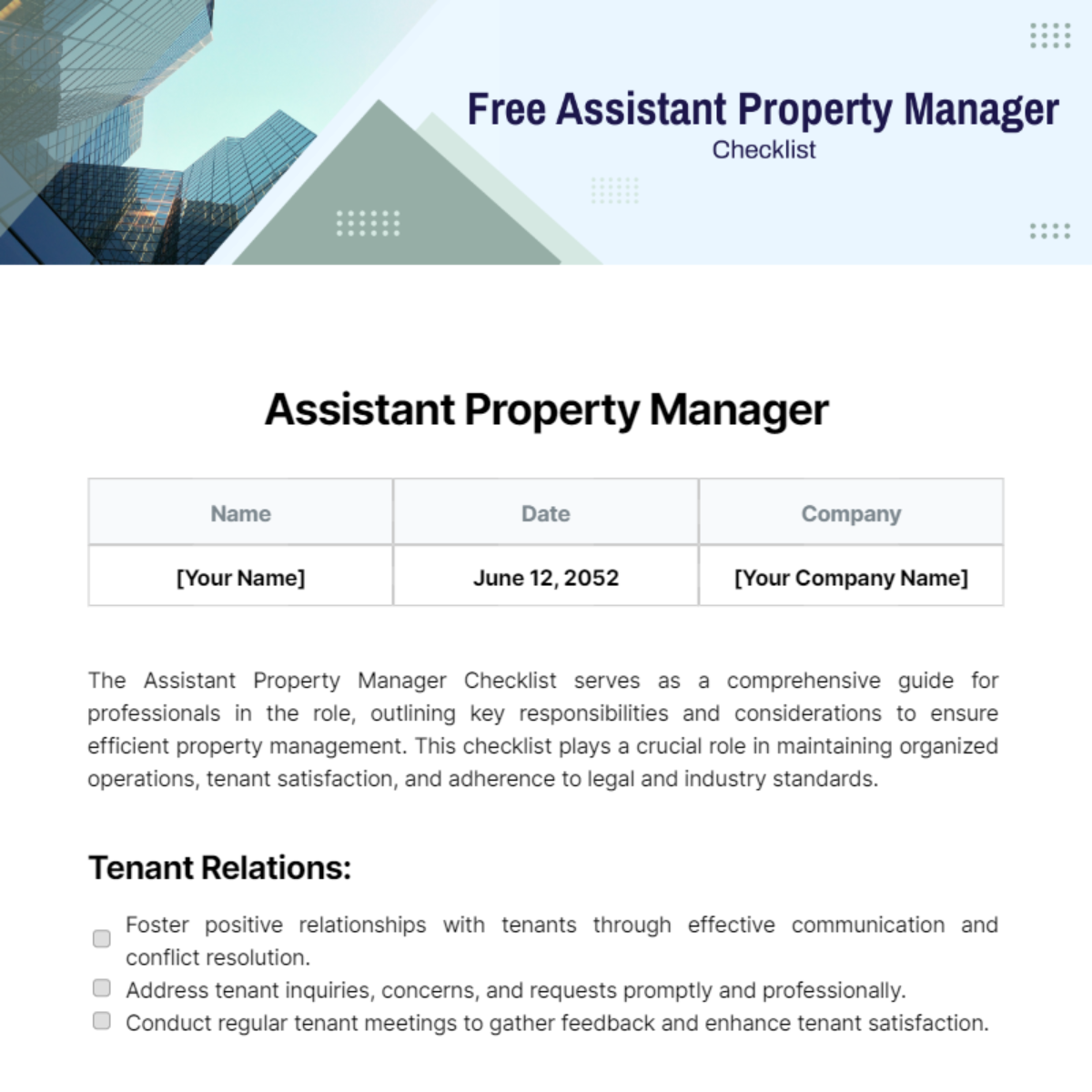
Name | Date | Company |
|---|---|---|
[Your Name] | June 12, 2052 | [Your Company Name] |
The Assistant Property Manager Checklist serves as a comprehensive guide for professionals in the role, outlining key responsibilities and considerations to ensure efficient property management. This checklist plays a crucial role in maintaining organized operations, tenant satisfaction, and adherence to legal and industry standards.
Tenant Relations:
Foster positive relationships with tenants through effective communication and conflict resolution.
Address tenant inquiries, concerns, and requests promptly and professionally.
Conduct regular tenant meetings to gather feedback and enhance tenant satisfaction.
Lease Administration:
Assist in lease preparation, renewal negotiations, and enforcement of lease terms.
Maintain accurate and up-to-date lease records and documentation.
Coordinate lease signings and ensure compliance with legal requirements.
Property Maintenance:
Oversee property maintenance activities, addressing both routine and emergency repairs.
Collaborate with maintenance staff and external contractors to ensure timely and high-quality repairs.
Conduct regular property inspections to identify maintenance needs and safety issues.
Financial Management:
Assist in budget preparation and financial planning for the property.
Monitor and manage expenses to ensure alignment with budgetary constraints.
Process invoices, track rent payments, and address any financial discrepancies.
Rent Collection:
Implement effective rent collection processes, including reminders and follow-ups.
Address late payments and initiate appropriate actions by lease terms.
Collaborate with the accounting department to ensure accurate and timely rent reporting.
Vendor Management:
Evaluate and manage relationships with vendors and service providers.
Obtain competitive bids for services and negotiate contracts to ensure cost-effectiveness.
Monitor vendor performance and adherence to service level agreements.
Tenant Onboarding and Offboarding:
Facilitate the onboarding process for new tenants, including lease orientation and property introductions.
Coordinate move-ins and move-outs, conducting property inspections as needed.
Manage the turnover process, ensuring efficient unit preparation for new tenants.
Emergency Response Planning:
Develop and implement emergency response plans in collaboration with property management.
Conduct regular training sessions for staff and tenants on emergency procedures.
Ensure the property is equipped with the necessary safety equipment and resources.
Compliance and Regulations:
Stay informed about local, state, and federal regulations impacting property management.
Ensure the property complies with safety, accessibility, and environmental regulations.
Coordinate inspections and audits to maintain compliance with industry standards.
Reporting and Documentation:
Maintain accurate and organized records related to property management activities.
Prepare regular reports for senior management, detailing property performance and key metrics.
Document incidents, resolutions, and communications for future reference.
Tenant Communication Platforms:
Utilize various communication platforms to keep tenants informed about property updates.
Implement effective communication strategies through newsletters, emails, or community portals.
Foster a sense of community through engagement initiatives and resident events.
Security Measures:
Oversee security protocols for the property, including access control and surveillance systems.
Address security concerns promptly and collaborate with law enforcement when necessary.
Implement strategies to enhance the overall safety and security of the property.
- 100% Customizable, free editor
- Access 1 Million+ Templates, photo’s & graphics
- Download or share as a template
- Click and replace photos, graphics, text, backgrounds
- Resize, crop, AI write & more
- Access advanced editor
Streamline property management tasks with the Assistant Property Manager Checklist from Template.net. This editable and customizable template, effortlessly tailored with our Ai Editor Tool, ensures a personalized and efficient managerial routine. Elevate the assistant manager's experience with this user-friendly checklist, designed for maximum efficiency. Customize effortlessly, ensuring comprehensive task management and successful property operations with ease and precision
You may also like
- Cleaning Checklist
- Daily Checklist
- Travel Checklist
- Self Care Checklist
- Risk Assessment Checklist
- Onboarding Checklist
- Quality Checklist
- Compliance Checklist
- Audit Checklist
- Registry Checklist
- HR Checklist
- Restaurant Checklist
- Checklist Layout
- Creative Checklist
- Sales Checklist
- Construction Checklist
- Task Checklist
- Professional Checklist
- Hotel Checklist
- Employee Checklist
- Moving Checklist
- Marketing Checklist
- Accounting Checklist
- Camping Checklist
- Packing Checklist
- Real Estate Checklist
- Cleaning Checklist Service
- New Employee Checklist
- Food Checklist
- Home Inspection Checklist
- Advertising Checklist
- Event Checklist
- SEO Checklist
- Assessment Checklist
- Inspection Checklist
- Baby Registry Checklist
- Induction Checklist
- Employee Training Checklist
- Medical Checklist
- Safety Checklist
- Site Checklist
- Job Checklist
- Service Checklist
- Nanny Checklist
- Building Checklist
- Work Checklist
- Office Checklist
- Training Checklist
- Website Checklist
- IT and Software Checklist
- Performance Checklist
- Project Checklist
- Startup Checklist
- Education Checklist
- Home Checklist
- School Checklist
- Maintenance Checklist
- Planning Checklist
- Manager Checklist
- Wedding Checklist
- Vehicle Checklist
- Travel Agency Checklist
- Vehicle Inspection Checklist
- Interior Design Checklist
- Backpacking Checklist
- Business Checklist
- Legal Checklist
- Nursing Home Checklist
- Weekly Checklist
- Recruitment Checklist
- Salon Checklist
- Baby Checklist
- Equipment Checklist
- Trade Show Checklist
- Party Checklist
- Hospital Bag Checklist
- Evaluation Checklist
- Agency Checklist
- First Apartment Checklist
- Hiring Checklist
- Opening Checklist
- Small Business Checklist
- Rental Checklist
- College Dorm Checklist
- New Puppy Checklist
- University Checklist
- Building Maintenance Checklist
- Work From Home Checklist
- Student Checklist
- Application Checklist
